Schools2030 uganda
Promoting teacher leadership across the country capital, Kampala.
In Uganda, as in the rest of East Africa, participation in the Schools2030 programme is demand-driven: each year, the Schools2030 team advertises the year’s design challenge for teachers and youth partners to opt in. The application process gives teachers and youth partners a choice in participating in the programme.
Each design team has between four to six teachers, who can be from the same or from different schools. The design teams are self-formed during the application, or assigned by Schools2030 staff from individual applicants based on their context. The teachers, with the support of design coaches, have regular check-ins to facilitate reflection and iteration of their innovations.
Each year, the design challenges are co-created with teachers and other education partners – examples include increasing parental involvement in education, building climate resilience or tackling inclusion issues. The challenges are informed by data from contextually relevant assessments and exploration of the lived experiences of teachers, learners, parents and others. Watch the video to learn more about what some of these innovations look like in practice!
At the end of the design cycle, the Schools2030 Innovation Evaluation Tool is used to select ‘promising’ innovations, which will go onto further incubation and testing in other classrooms. Read more about the tool on our Innovate page, and view the Teachers’ Design Journey Roadmap for Schools2030 East Africa to learn more.
Our Team in UGANDA

Richard Lacere
Schools2030 National Coordinator
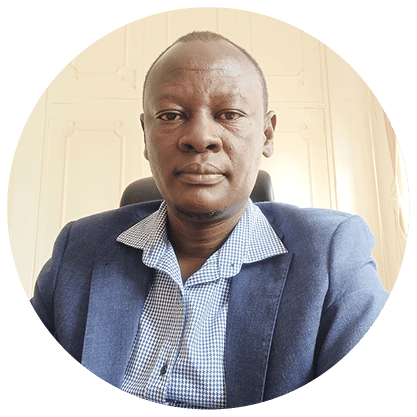
Paschal Mandhawun
Country Manager

Susan Balayo
Regional Grants Manager
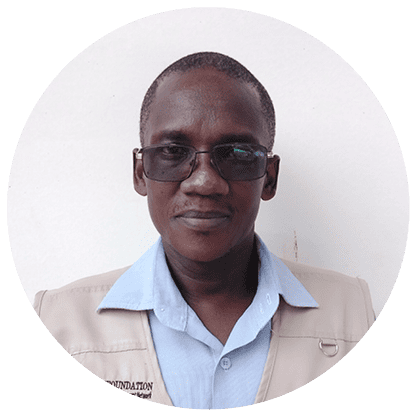
Elly Nayanda
Programme Officer
Benneth Nimusiima
Data Officer
Charity Mugaya
Accountant
The Ugandan Education Context
Landlocked Uganda, located in the Nile basin region in East Africa, has been an independent nation since 1962. With 10 national parks, 12 wildlife reserves, 5 community wildlife management areas and 13 wildlife sanctuaries, Uganda is teeming with a spectacular array of wildlife. Uganda is home to around 345 species of mammal – including more than half the world’s endangered mountain gorillas – and over 1000 species of birds.
Show More
Despite ongoing challenges and conflict, Uganda’s educational system has seen significant change since the late 1990s. The system is set up so that children spend seven years in primary school, six years in secondary school, and three to five years in post-secondary school. In 1997, the government declared that primary school would be free for all children. This amendment has had huge benefits. In 1986, only two million children were attending primary school. By 1999, six million children were attending primary school, and this number has continued to climb. Following significant gains in access to primary education since 1997 when universal primary education (UPE) was introduced, Uganda in 2007 became the first country in sub-Saharan Africa to introduce universal secondary education (USE). This bold step by the Government of Uganda led to an increase in lower secondary enrolment of nearly 25% between 2007 and 2012.
The broad aims of the education system in Uganda are eradication of illiteracy, promotion of scientific, technical, and cultural knowledge; promotion of national unity; and promotion of moral values.
The Ugandan Education Context
Landlocked Uganda, located in the Nile basin region in East Africa, has been an independent nation since 1962. With 10 national parks, 12 wildlife reserves, 5 community wildlife management areas and 13 wildlife sanctuaries, Uganda is teeming with a spectacular array of wildlife. Uganda is home to around 345 species of mammal – including more than half the world’s endangered mountain gorillas – and over 1000 species of birds.
Despite ongoing challenges and conflict, Uganda’s educational system has seen significant change since the late 1990s. The system is set up so that children spend seven years in primary school, six years in secondary school, and three to five years in post-secondary school. In 1997, the government declared that primary school would be free for all children. This amendment has had huge benefits. In 1986, only two million children were attending primary school. By 1999, six million children were attending primary school, and this number has continued to climb. Following significant gains in access to primary education since 1997 when universal primary education (UPE) was introduced, Uganda in 2007 became the first country in sub-Saharan Africa to introduce universal secondary education (USE). This bold step by the Government of Uganda led to an increase in lower secondary enrolment of nearly 25% between 2007 and 2012.
The broad aims of the education system in Uganda are eradication of illiteracy, promotion of scientific, technical, and cultural knowledge; promotion of national unity; and promotion of moral values.
THE THREE-STEP MODEL IN UGANDA
ASSESS
Similarly to other Schools2030 countries, Uganda worked alongside its National Advisory Committee in 2021 to define the priority learning domains on which the programme will focus, to ensure these were aligned to national education priorities. Education stakeholders, schoolteachers, representatives from the Ministry of Education in Uganda and members of education CSOs all contributed to defining how these domains would be measured in practical terms.
This paved the way for the Emily Tusiime, the Regional Assessment Coordinator for AKF in East Africa, the Global Assessment Partner, Oxford MeasurEd, and teachers from each age group to work together to co-develop a suite of contextualised and validated assessment tools to measure learning outcomes for primary and secondary school age groups.
For the preprimary cohort, tools to measure the quality of the classroom environment and learning outcomes were adapted from existing tools like ECD Measure’s Brief Childhood Quality Inventory (BEQI) and Save the Children’s International Development and Early Learning Assessment (IDELA) respectively; in many cases such tools have never existed before in Uganda.
Since the development and rolling out of these tools across Schools2030 schools, the team has worked to enhance teacher assessment capabilities, including building their comfort with tools, defining specific roles and responsibilities for teachers and partners and identifying gaps where expertise is needed.
Priority Learning Domains
UGANDA
PRE-SCHOOL
- Literacy
- Numeracy
- Relationship Building
- Creativity
- Arts & Culture
PRIMARY SCHOOL
- Literacy
- Numeracy
- Empathy
- Self-Efficacy
- Problem Solving
SECONDARY SCHOOL
- Literacy
- Numeracy
- Digital Literacy
- Entrepreneurship
- Relationship Building
Access examples of assessment tools
from across our programme countries.
All these tools are available free to download below and will continue to be refined and iterated to ensure robust psychometric validity.
My pupils were recognised to have been the best in reading and writing because of the practices I gained during the Schools2030 trainings.
Rashida, Primary School Teacher
INNOVATE
During 2021, Schools2030 Uganda team successfully hosted Human-Centred Design workshops in two phases over 5 days. The first phase comprised the ‘launch, explore, define, generate and make’ phases, with the teachers learning to use the rapid assessment tools (developed for early baseline measurement whilst awaiting more robust tools) as well as interview techniques, to scope any challenges they perceived. The second phase was dedicated to prototyping, and currently a huge variety of innovations in a variety of learning sites are undergoing implementation and testing for efficacy.
Show More
Despite ongoing challenges and conflict, Uganda’s educational system has seen significant change since the late 1990s. The system is set up so that children spend seven years in primary school, six years in secondary school, and three to five years in post-secondary school. In 1997, the government declared that primary school would be free for all children. This amendment has had huge benefits. In 1986, only two million children were attending primary school. By 1999, six million children were attending primary school, and this number has continued to climb. Following significant gains in access to primary education since 1997 when universal primary education (UPE) was introduced, Uganda in 2007 became the first country in sub-Saharan Africa to introduce universal secondary education (USE). This bold step by the Government of Uganda led to an increase in lower secondary enrolment of nearly 25% between 2007 and 2012.
The broad aims of the education system in Uganda are eradication of illiteracy, promotion of scientific, technical, and cultural knowledge; promotion of national unity; and promotion of moral values.
Download our HCD Tools for Uganda to start creating education innovations in your school.
Schools2030 Human-Centred Design Toolkit
Full version
Schools2030 Human-Centred Design Toolkit
Sprint version
Schools2030 Human-Centred Design Facilitator Guide
Schools2030 Human-Centred Design School Leader Guide
SHOWCASE
The ‘Showcase’ step provides an opportunity for teachers to tell the story of their design journey while providing (and receiving) feedback from their peers. Showcasing is designed to be both informative, sharing knowledge of ‘what works’ in each classroom, as well as celebratory, marking the end of the innovation journey and recognising the achievement of the teacher involved, regardless of the outcome of their innovation.
Showcasing takes many forms, including events hosted by Schools2030, as well as at school education days (reaching educators, parents and the community), through country education events (reaching county governance) and through partner events (reaching other actors in the Ugandan education ecosystem). Teachers also upload their innovations and ideas to the Faved platform, so these can be shared with teachers from around the world.
Teachers prepare for these opportunities using Schools2030’s mini-course, ‘Inspiring Change through our Stories’. This course supports them to prepare oral presentations with a strong storytelling component that is compelling and inspiring, as well as to share the initial impact of their idea in the classroom. They are also able to exhibit any prototypes they have created, so that other teachers, learners and invitees can interact with and provide feedback for improvement.
In Uganda, county-level Showcase events take place in Arua and Kampala for all design teams/teachers. These events are usually attended by representatives from the Ministry of Education, county government partners, other teachers, learners, partners and civil society actors. A selection of the most promising innovations may go on to showcasing opportunities elsewhere, including at the annual Schools2030 Global Forum.
News and stories from Uganda
IMPACT AND LEARNING
Uganda
We regularly produce learning and research reports that inform and strengthen our programme delivery. Read and share our latest learnings for Uganda or click below to browse all our reports.
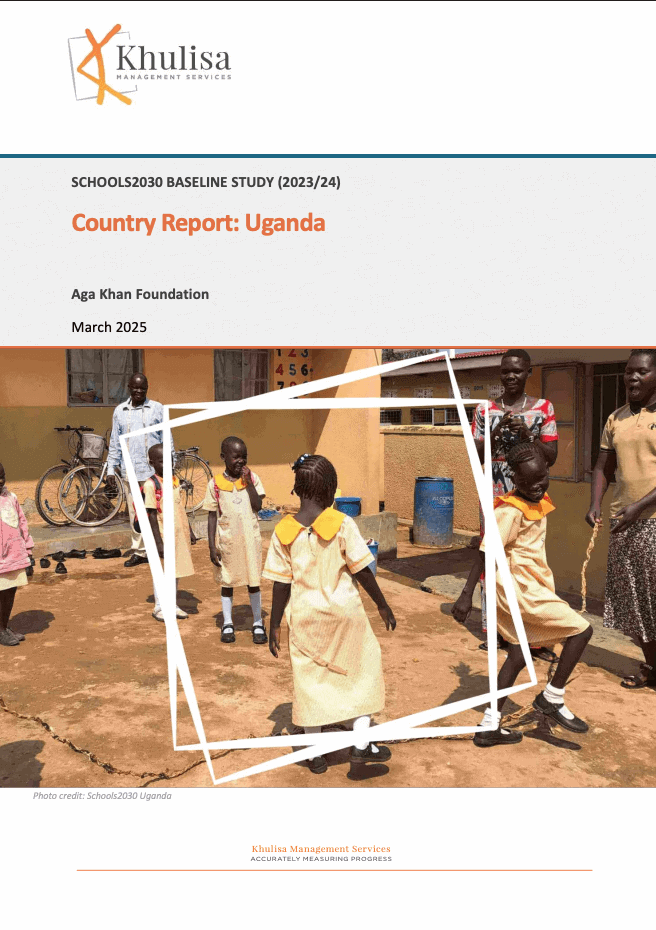
Schools2030 Uganda Baseline Evaluation
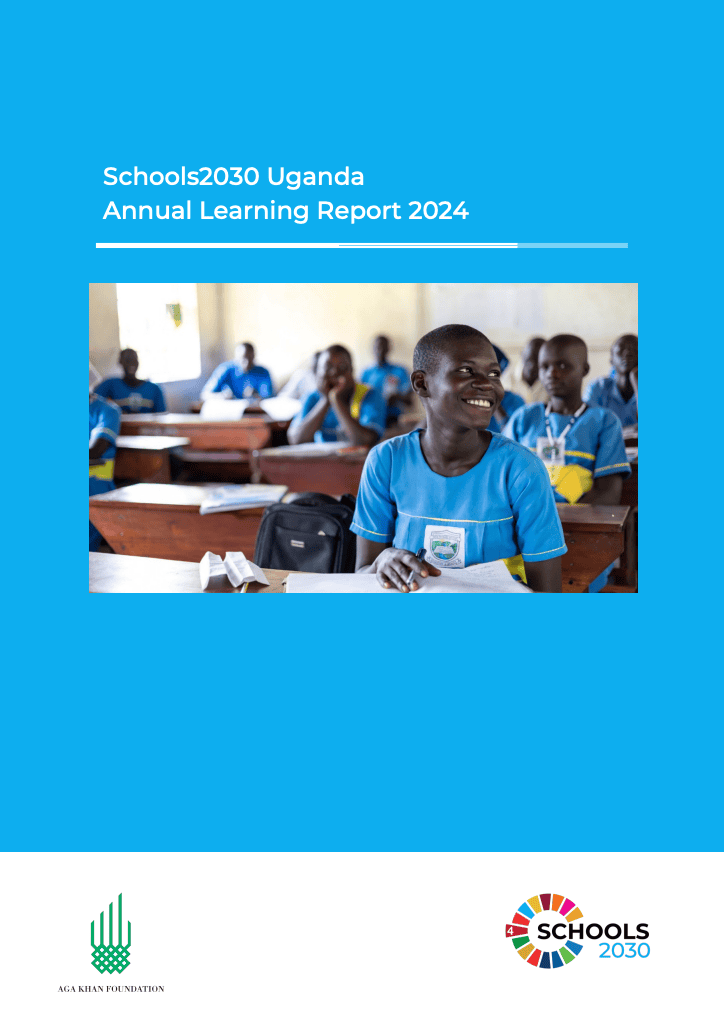
Learning Report 2024
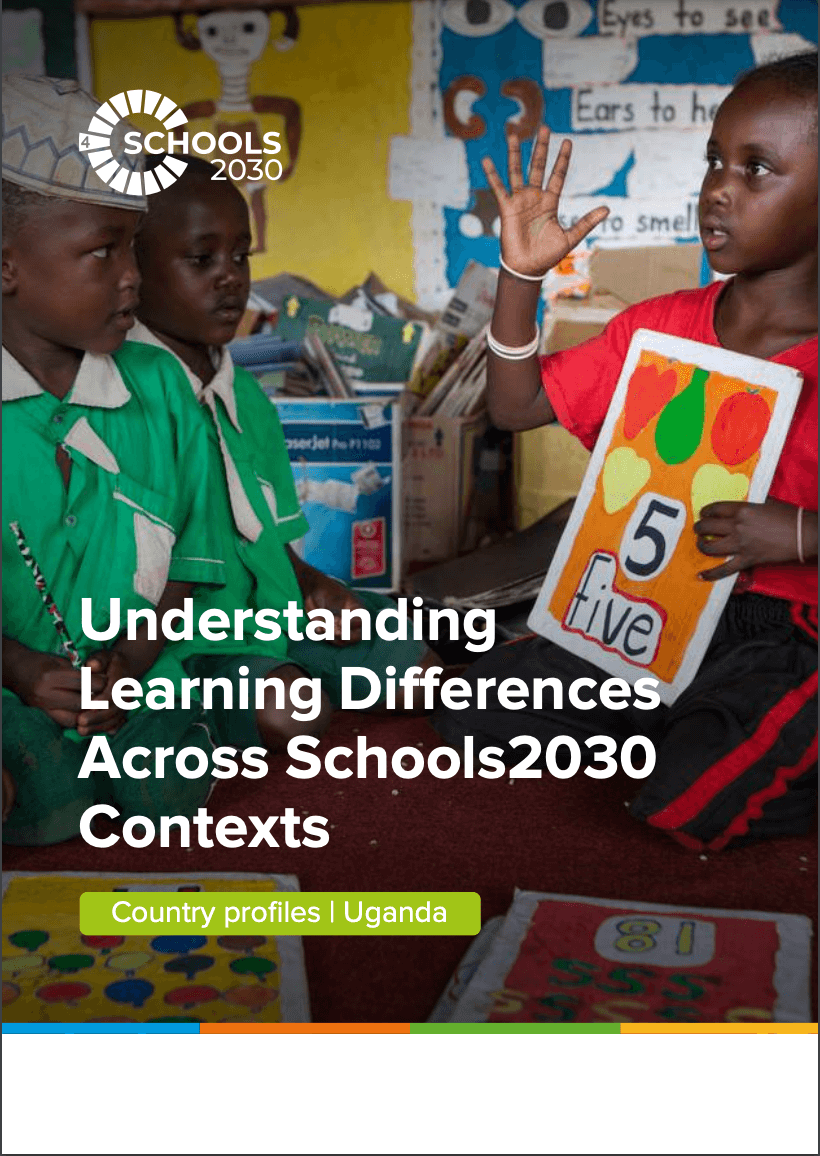
Learning Differences - Uganda
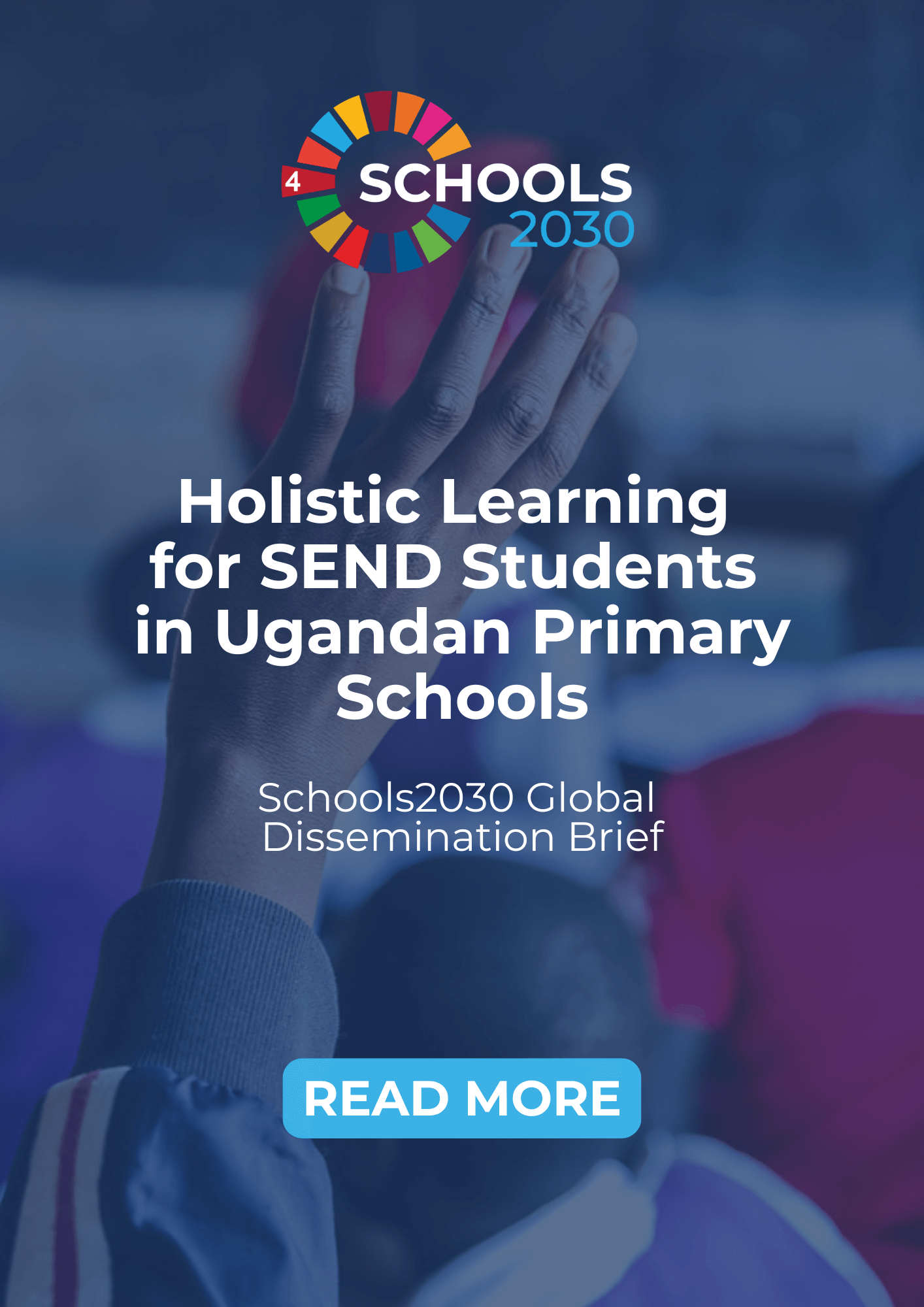
Research Report - Uganda
OUR UGANDAN partners
National Advisory Committee
The National Advisory Committee (NAC) provides strategic guidance, helps to amplify the work of teachers nationally and ensures that the Schools2030 programme in aligns to governmental education priorities. Representatives from the following organisations comprise the NAC in Kenya.
Dr Mugenyi Cleophus
Director Basic Education | Mininistry of Education
Mike Nangosya
Director-Examinations | Uganda National Examinations Board
Baguma Grace
Director | National Curriculum Development Center
Annet Kiberu Mpuuga
Chairperson Readers Association Africa | Readers Association
Fatuma Wamala
Cluster Lead | Regional Education Learning Initiative (RELI)
Raymond Ombele
District Education Officer | Arua City
David Osuku
Programme Manager – Education | Kampala City Council Authority
Hajat Rehma Lutalo
HeadTeacher / Country Facilitator British Council Classroom Experiences Project (Kalungu Masaka) | Kalungu Senior Secoundary School
Rupert Corbishley
Regional Advisor | Aga Khan Foundation (AKF)
Paschal Mwandham
Country manager | AKF-Uganda
Richard Lacere
Schools2030 Coordinator | AKF
Country Assessment Partners and Learning Partners
In-country Assessment Partners initially supported the development of Schools2030 assessment tools and offer ongoing guidance for teachers in using them. Learning partners in each country track and measure the efficacy of the innovations and teacher professional development, and produce yearly reports with recommendations for how to make the programme stronger. Find out more about how our global and national partnerships work on our Coalition page.
Explore Schools2030 in our other countries.








